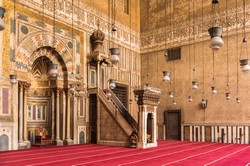Medieval Islamic history reconstructed
The MMS (The Mamlukisation of the Mamluk Sultanate. Political traditions and state formation in 15th century Egypt and Syria) project involved showing how new traditions emerged and were constructed around the principle of military slavery. This reflects a process of state formation, putting the Mamluk Sultanate on similar terms with that of emerging socio-political transformations elsewhere in the early modern Euro-Mediterranean zone. Two main areas that were addressed involved looking at the rules of 15th century regional politics and how they changed over time. A methodological perspective using three types of research was applied and a complex relational database system was used. Results included identifying the individual and social identities of main political agents, and reconstructing how agencies, practices and institutions interacted. The work also defined the Cairo Sultanate's process of state formation beyond the narrow context of continuing institutionalisation as a social creation of the constant combination, rise and disintegration of central power networks. It was revealed that there has been a widespread use of the term the Mamluk state, which has proven to be an ideological construction that is empty and meaningless for analytical purposes. Results will be published in a book-length synthesis on political traditions. Ultimately, MMS work will help to address fundamental new questions in pre-modern Islamic history.




